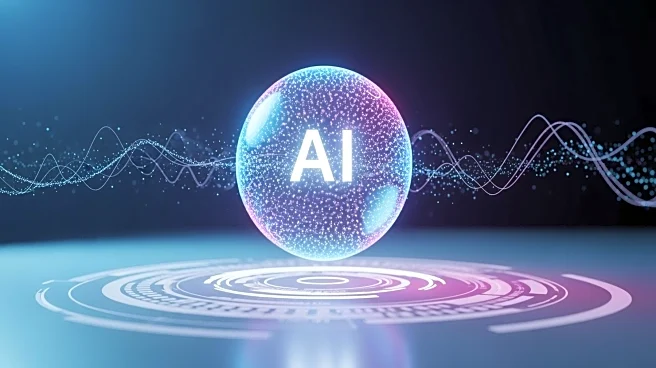What's Happening?
Andrej Karpathy, co-founder of OpenAI, has addressed growing concerns among workers about the potential for AI agents to replace human jobs. Speaking on the Dwarkesh Podcast, Karpathy emphasized that AI technology is still far from being able to operate
independently without human oversight. He described current AI agents as lacking the cognitive abilities necessary to perform complex tasks autonomously, likening them to interns who require guidance. Despite advancements in AI, Karpathy noted that these tools are not yet capable of continual learning or multimodal operations, which are essential for more sophisticated applications. Current uses of AI agents include customer service and IT support, but they still require human intervention to function effectively.
Why It's Important?
The discussion around AI agents is crucial as it highlights the ongoing tension between technological advancement and job security. While AI has the potential to streamline operations and reduce costs, the fear of job displacement remains a significant concern for many workers. Karpathy's insights suggest that while AI will continue to evolve, it will not immediately replace human roles, providing some reassurance to those worried about job security. This perspective is important for industries considering AI integration, as it underscores the need for a balanced approach that includes human oversight. Companies may need to focus on upskilling their workforce to work alongside AI, rather than replacing them outright.
What's Next?
As AI technology continues to develop, companies are likely to experiment with AI agents in various administrative roles. However, the current limitations highlighted by Karpathy suggest that full automation is still a decade away. Businesses may need to invest in training programs to help employees adapt to working with AI tools. Additionally, there may be increased collaboration between AI developers and industry leaders to address the technological gaps identified by Karpathy. The ongoing dialogue about AI's role in the workforce will likely influence future policy decisions and corporate strategies regarding AI implementation.
Beyond the Headlines
The ethical implications of AI in the workplace are significant, as they touch on issues of privacy, data security, and the potential for bias in AI decision-making. As AI agents become more integrated into business operations, companies will need to address these concerns to maintain trust with both employees and customers. Furthermore, the cultural shift towards AI-assisted work environments may require changes in workplace dynamics and management practices. Long-term, the evolution of AI could lead to new job categories and opportunities, reshaping the labor market in unforeseen ways.















